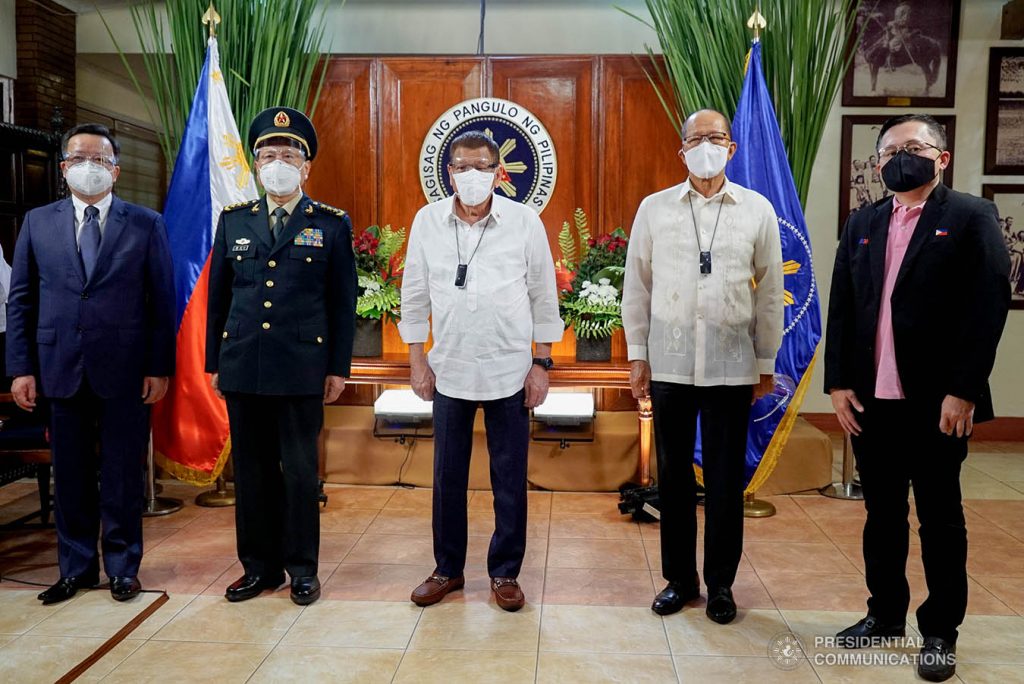Headline
PRRD stresses importance of UNCLOS in resolving SCS issues

President Rodrigo Roa Duterte poses for posterity with State Councilor and Minister of National Defense of the People’s Republic of China General Wei Fenghe following a meeting at the Malago Clubhouse in Malacañang on September 11, 2020. With the President are Defense Secretary Delfin Lorenzana and Senator Christopher “Bong” Go. KING RODRIGUEZ/PRESIDENTIAL PHOTO
MANILA – President Rodrigo Duterte underscored the importance of international law in resolving disputes in the South China Sea (SCS) during his meeting with visiting Chinese State Councilor and Defense Minister, Gen. Wei Fenghe, in Malacañang on Friday.
“We must always be guided by our commitments in international law. Any and all disputes must be resolved peacefully in full accord with the UNCLOS (United Nations Convention on the Law of the Sea) and all relevant international instruments,” Duterte said in a Palace press statement.
At the same time, the President underscored the need for an effective and substantive Code of Conduct in the South China Sea as he noted its strategic importance where navigational and other freedoms under international law are guaranteed.
“All relevant players with a stake there must see themselves as playing an important stabilizing role,” he said.
The South China Sea, where the Spratly Islands are located, is contested by the Philippines, Vietnam, Malaysia, Brunei, Taiwan, and China, which claims almost 80 percent of the waters.
In a 2016 Arbitral ruling, the Permanent Court of Arbitration invalidated China’s nine-dash line as illegal, with UNCLOS as its basis.
Wei, meanwhile, told Duterte that China “is ready to work with the Philippines on maritime cooperation, advance negotiations on the Code of Conduct in the South China Sea, and manage differences in order to secure peace and stability in the South China Sea.”
Wei is in Manila as part of a swing tour of the Association of Southeast Asian Nations (Asean) countries, including Indonesia, Malaysia, and Brunei Darussalam.

